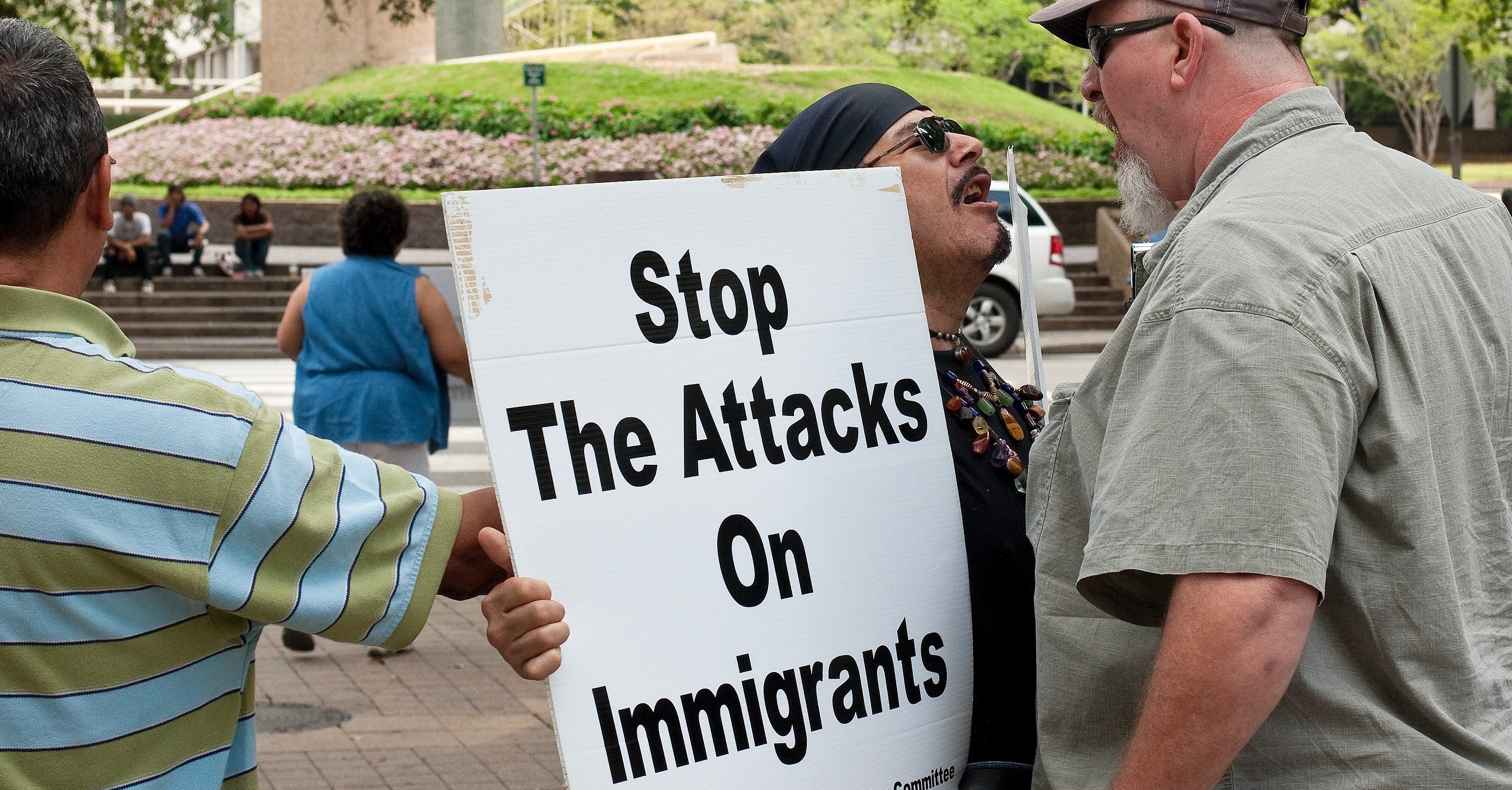A disturbing trend is sweeping the nation and potentially empowering rapists.
Videos by Rare
Only a few weeks after the Los Angeles Police Department reported that fewer Latinos were reporting rapes and other violent crimes, Houston authorities announced a similar trend.
RELATED: If you’re raped in Texas, there’s a good chance you’ll be assaulted twice
Last Wednesday at a press conference, HPD Chief Art Acevedo said Hispanics reported more than 42 percent fewer rapes than last year, and reports of violent crimes among the minorities are down by 13 percent:
“When you see this type of data, and what looks like the beginnings of people not reporting crime, we should all be concerned. A person that rapes or violently attacks or robs an undocumented immigrant is somebody that is going to harm a natural born citizen or lawful resident.”
Inversely to the minority findings, HPD analysis shows reports of rapes and violent crimes by non-Hispanic victims are up by 8.2 and 11.7 percent, respectively.
These trends are somewhat suggestive of minorities’ fear and supporters’ encouragement for the Trump administration’s immigration initiative, which has reportedly helped to reduce illegal immigration by more than 60 percent; however, this number’s representation is largely disputed.
Essentially, officials believe the data from Houston and other cities, like Los Angeles, suggests a growing number of minorities are afraid to come forward after they’ve been attacked or subject to a crime because they do not want themselves or their friends and family to be flagged for anything related to immigration or deportation in an environment where their community is under siege.
Acevedo said he frequently discusses such concerns with Houston residents, nearly 25 percent of which are Hispanic or Latino, and took time to reassure the public HPD officers are there to serve and protect all people, regardless of their ethnicity:
“I […] urge [minority victims] not to worry about political rhetoric or political debate but pay close attention to what’s happening in our city. Don’t worry about what’s going on at the national level — focus on what’s going on here. This relationship, this police department.”
This may be in reference to HPD’s recent choice to end its special enforcement partnership with federal immigration officials, which worked specifically to identify deportees in the criminal justice system until HPD declined to reassign the team this year.
However, in Houston’s absence, 18 other law enforcement officials across Texas are reportedly stepping up their efforts to “aggressively” assist federal authorities deport immigrants in the country illegally.
Unlike the HPD, these departments chose to apply or renew their commitments to remove illegal immigration through use of a designated team of deputies, and all are in talks with federal Immigration and Customs Enforcement (ICE) officials in at least some capacity.
ICE claims it has deported more than 3,700 “convicted criminal aliens” in cooperation with the local law enforcement teams since President Trump signed his immigration orders shortly after taking office.
While Houston is far from a sanctuary city and fully defiant to federal requirements for reporting immigrant-related information, HPD officers customarily do not ask people about their immigration status, and Acevedo maintains his department’s work is separate from federal objectives:
“We are not ICE agents, and we are not interested in being ICE agents.”
RELATED: President Trump’s immigration orders are hitting Houstonians close to home
If you or someone you know has been the victim of a sex or violent crime, there are people and services that can help.



